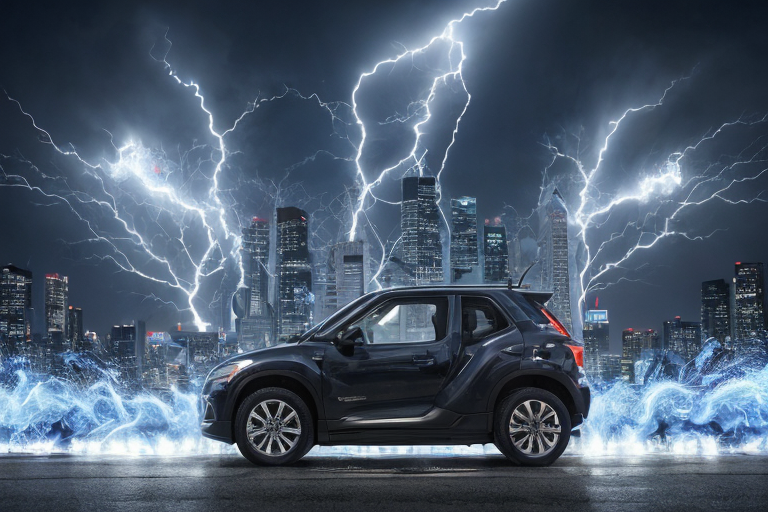According to recent developments, the Biden administration is set to announce 100% tariffs on electric vehicles imported from China, citing concerns over job losses and national security threats. This follows similar actions taken by former President Donald Trump, who implemented a 25% tariff on Chinese vehicle imports. The move comes as Chinese automaker BYD’s low-priced electric vehicle, the Seagull, gains popularity, causing alarm among US politicians and manufacturers. With a starting price of around $12,000 in China, the Seagull offers comparable driving experience and craftsmanship to more expensive US-made electric vehicles, with a shorter-range version costing under $10,000. However, the tariffs imposed by both Trump and Biden will keep the Seagull out of the US market for now, and it may sell for more than $12,000 if imported. Analysts warn that unless US automakers adapt, the entry of Chinese EVs into the US market poses a significant threat, potentially ending up as “an extinction-level event for the US auto sector.” While the exact timing of BYD’s expansion into the US market remains unclear, some members of Congress are calling for a complete ban on Chinese vehicle imports, including those manufactured in Mexico by Chinese firms. In response, Ford CEO Jim Farley has announced plans to design a new, small electric vehicle to compete with Chinese brands, acknowledging the rapid growth of Chinese EV makers in Europe. As the demand for electric vehicles increases globally, with many governments promoting a shift away from fossil fuels, the competitive landscape is evolving rapidly, with Chinese brands offering affordable options for the mass market. However, US manufacturers must adapt quickly to remain competitive, according to Terry Woychowski, a former chief engineer at General Motors’ pickup truck division. Woychowski noted that the entire Seagull, which has a range of 252 miles (405 km) per charge, is “an exercise in efficiency,” with cost savings achieved through BYD’s expertise in battery manufacturing, particularly lithium iron phosphate chemistry used in consumer products. Other cost-cutting measures include designing vehicles with efficiency in mind, such as the Seagull’s use of only one windshield wiper, and making many of its components in-house. The Seagull also represents a departure from traditional US design and engineering practices, which can result in excess engineering costs, according to Woychowski. Despite the tariffs, analysts believe that Chinese EVs pose a significant challenge to US automakers. “Any car company that’s not paying attention to them as a competitor is going to be lost when they hit their market,” warned Sam Fiorani, a vice president at AutoForecast Solutions near Philadelphia. “BYD’s entry into the U.S. Market isn’t an if. It’s a when.”

100% Tariffs on Chinese Electric Vehicles Announced by Biden Administration amidst National Security Concerns and Job Losses
•
Recent Posts
Advertisement
Advertisement example


Leave a Reply